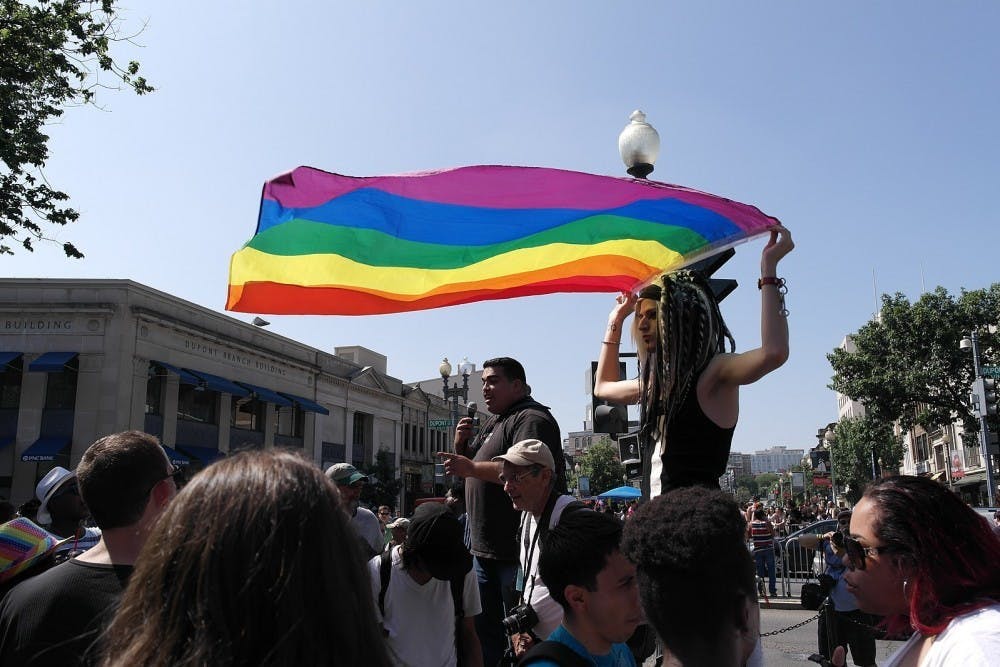June 1 marks the annual start of pride — a month dedicated to the celebration of queer culture, consciousness raising for queer issues and a solemn remembrance for the thousands of lives lost to anti-queer violence around the world. Pride events around the country — parades, street festivals, benefit concerts and more — invoke memories of the Stonewall riots of June 1969, where Black trans women rioted against police brutality. These events create safe, welcoming spaces for queer people to express themselves.
June 1, 2020, marks seven days since the murder of George Floyd, who was killed by a Minneapolis police officer kneeling on his neck for several minutes. It marks seven days of civil unrest, nightlong riots, mandatory curfews and National Guard deployments to several major cities. Every year, the police kill hundreds of Black Americans. In 2019, Black Americans made up 24 percent of the 1,098 killed by police, despite only being 13 percent of the total population. The historical origins of pride and the continued terror enacted by police against people of color both demonstrate a necessary change to the way the queer community views pride.
Nearly all pride events have police presence in some capacity — either for security and surveillance or for active participation. In Capital Pride, held annually in Washington, D.C., for example, the Metropolitan Police Department is tasked with securing events and are annually invited to march in the pride parade. The presence of police at pride events, in any capacity, runs directly opposed to the very ethos of pride.
Furthermore, police are actively harming the queer community. The National Coalition of Anti-Violence Programs 2017 annual report found that 75 percent of queer survivors of hate violence and 58 percent of queer survivors of intimate-partner violence reported that police were “indifferent or hostile” toward them. Gender identity and race exponentially increase these statistics. Transgender survivors are nearly four-times more likely to experience physical violence than their cisgender counterparts, and Black transgender survivors are six-times more likely. Police are clearly not, and have never been, allies of the queer community.
Police violence against queer minorities is more than just numbers. In June 2018, Philadelphia police violently arrested ReeAnna Segin, an 18-year-old trans woman, for attempting to burn a “Blue Lives Matter” flag at the city’s pride parade. She was later sent to an all-men’s prison, despite identifying as a woman. Nearly 50 percent of transgender people report being repeatedly misgendered by law enforcement, and the carceral system routinely ignores gender identity in prisoner placement. Additionally, in June of 2017, police in Columbus, Ohio arrested the Black Pride 4 for peacefully protesting both the recent acquittal of the police officer who killed Philando Castille and the “lack of space for Black and Brown people at pride festivals.” ReeAnna Segin and the Black Pride 4 are not isolated incidents. They are representative of the wider trend of violence against queer people — and especially queers of color.
Some queer commentators argue — rather obtusely — that not all cops are bad, and that cops should be invited to pride festivals to foster stronger community relationships. Such an argument completely misunderstands both the theoretical foundations and ultimate goals of queer and racial justice movements. All cops contribute to the systemic violence that we have seen highlighted recently. This is not because all cops engage in malpractice or brutality, but because all cops are voluntarily choosing to participate in the overarching system of oppression made possible, in part, by the basic concepts of policing and the carceral state. The goal is not identifying bad cops and ostracizing them, as some suggest. The goal is radically altering or tearing down the very systems and institutions which create and maintain state-sanctioned violence against marginalized communities.
The queer rights movement must ban cops from pride events both to protect our own and to stand in solidarity with allies of color who suffer from disproportionate state violence at the hands of police. We cannot provide police a platform with which to terrorize, assault and murder queers and people of color by inviting them to attend, participate, secure and surveil pride events. We must stand against oppression in all forms and against all bodies. Pride cannot effectively serve its function while it is compromised by the presence of police. The queer rights movement cannot forget its roots as a radical social movement combating hate, oppression and police brutality. The first pride at Stonewall was an anti-police riot. We can never forget that.
Noah Strike is an Opinion Columnist for The Cavalier Daily. He can be reached at opinion@cavalierdaily.com.
The opinions expressed in this column are not necessarily those of The Cavalier Daily. Columns represent the views of the authors alone.







